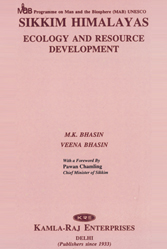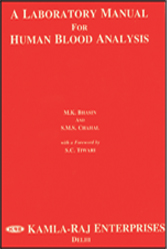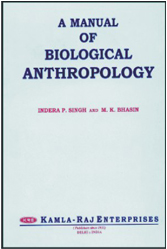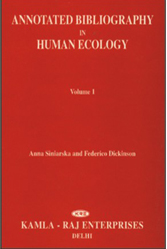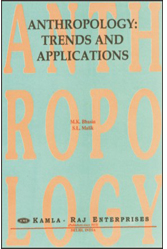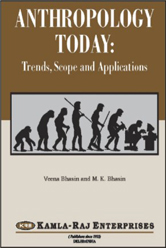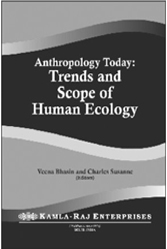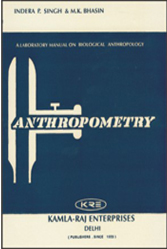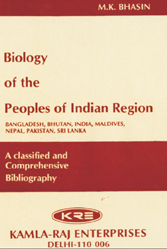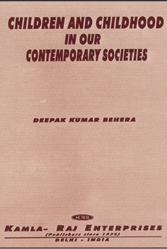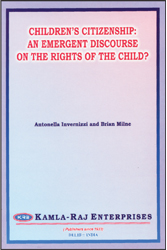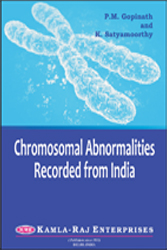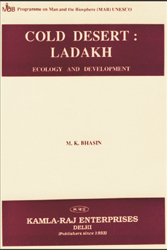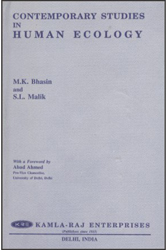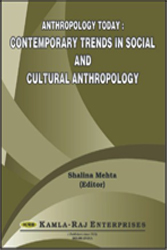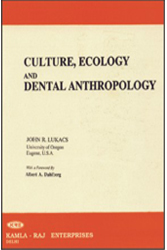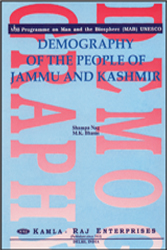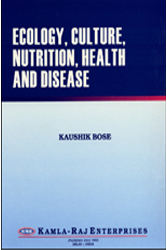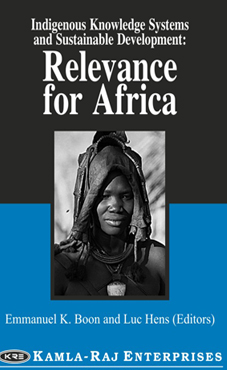SPECIAL VOLUME TRIBES AND TRIBALS
INDIGENOUS KNOWLEDGE SYSTEMS AND SUSTAINABLE DEVELOPMENT:
RELEVANCE FOR AFRICA
EMMANUEL K. BOON AND LUC HENS
(Vrije Universiteit Brussel, Brussels, Belgium)
2007 • Pages: 264 • Size: 180x240 •
ISBN 81-85264-44-9 • Binding: Hard • PRICE: US $ 75/- Rs. 1450/-
(Tribes and Tribals Special Volume No. 1)
Knowledge refers to what one knows and understands. For many countries in the developing world, the basic component of their knowledge system is indigenous knowledge, which is also often referred to as traditional knowledge (World Bank, 1997). Indigenous knowledge refers to traditional and local knowledge existing within and developed around specific conditions of women and men indigenous to a particular geographic area in contrast with knowledge generated within the international system of universities, research institutes and private firms (Warren, 1991). Indigenous knowledge in Africa is an embodiment of different modes of thought and "epistemology". It is an appreciation of the possession of interconnected details, which in isolation, are of lesser value.
Several studies have pointed to the increasing significance of knowledge and indigenous knowledge systems (IKS) in sustainable development (SD) in Africa and the developing world in general. The indigenous people of Africa and the world at large have a rich repertoire of knowledge based on their cultures, environments, natural resources, political, social and economic institutions that may be the key drivers for poverty reduction, livelihood improvement and sustainable development.
Despite the serious erosion of IKS over the decades in many communities in Africa, they are still most relevant and appropriate for promoting SD of the continent. Far from being anachronistic in the contemporary world, these knowledge systems have much to offer development policy-makers, environmental managers, administrators, and stakeholders. The integration of IKS in policy formulation and the execution of development programmes and projects should be accorded much attention.
This book aims to catalyse a positive change in the minds of development cooperation policy-makers, administrators, researchers, teachers, students and the other stakeholders in Africa and the other continents about the importance of IKS in sustainable development and poverty reduction. In fact, IKS are an appropriate avenue for appraising development paradigms being implemented in the continent. The book clearly underlines the importance of indigenous knowledge systems (IKS) to sustainable development (SD) in Africa and the rest of the developing world. The concept of IKS, its theoretical underpinning and the extent to which indigenous knowledge is systematised and structured need to be properly understood.
The book comprises of four parts. The first presents the introduction and discussion of eight key issues on indigenous knowledge systems. Sectoral case studies on IKS and sustainable development are presented in Part Two. The sectors covered include agriculture, architecture and human settlements and water resources. Part Three of the book deals with African sub-regional case studies: Central Africa, East Africa, Southern Africa and West Africa. The final Part of the book presents a number of international case studies on IKS and sustainable development in Brazil, Peru, Philippines, Vietnam, the IUCN and UNEP.
CONTENTS
Preface and Acknowledgements
List of Contributors
PART ONE: INTRODUCTION AND KEY ISSUES
- Introduction, Luc Hens and Emmanuel K. Boon
- Keynote Address, Benjamin Van Camp
-
A Comparative Overview of Academic Discourse on Indigenous Knowledge in the Middle East And Africa, Stale Knudsen
-
Indigenous Knowledge and Sustainable Development in Africa: Democracy,
Governance and Conflict Resolution, Michel Ansay
-
Indigenous Knowledge Systems and the Need for Policy and Institutional Reforms, Kwame Ameyaw Domfeh
-
Management and Indigenous Knowledge Systems: An Analysis of Motivational Values across Cultures,Osarumwense Iguisi
-
Knowledge Systems and Traditional versus Modern Social Security Systems in Africa, Emmanuel K. Boon
-
African Indigenous Knowledge Systems and the Patent Regime: Is the Patent System Relevant to the Native Healers of Southern Nigeria?, Ikechi Mgbeoji
-
Contemporary Comparative Cultural Studies: Theory, Contexts and Trends, Rik Pixten
PART TWO: SECTORAL CASE STUDIES
- Indigenous Agricultural Knowledge in Rainfed Rice Based Farming Systems for Sustainable Agriculture: Learning from Indian Farmers, Ranjay K. Singh
- The Study of Water Supply and Traditional Water Purification Knowledge in Selected Rural Villages in Tanzania,Nancy Jotham, Gunno Renman and Gunnar Jacks
PART THREE: AFRICAN SUB-REGIONAL CASE STUDIES
- Indigenous Knowledge and Sustainable Development in Africa: Case Study on Central Africa, Charles Eyong
- Indigenous Knowledge Systems and Sustainable Development in Africa: Case Study on Kenya, Davis Wekesa Barasa
-
Enabling a Global Imperative of Sustainable Development through Indigenous (Local) Ways of Knowing: A Case of Southern African, Edgar Neluvhalanit
-
Case Study on Southern African Development Co-operation (SDAC), Ndangwa Noyoo
-
Case Study on West Africa, Emmanuel Akyeampong
PART FOUR: INTERNATIONAL CASE STUDIES
- Indigenous Knowledge and Sustainable Development in Brazil, Fernando Pires
-
The Role of Indigenous Knowledge and Sustainable Development: A Case Study in Latin America, Norka Malpartida
-
Indigenous Knowledge Systems and Higher Education in the Philippines, Ricarte Abejuela III
-
The Role of Indigenous Knowledge and Sustainable Development: A Case Study of the Vietnam Mountain Regions, Tran Chi Trung, Le Xuan Quynh, Vu Van Hieu
-
Challenges for the Maintenance of Traditional Biodiversity Knowledge in Latin America, Gonzalo Oviedo
-
Indigenous People and Sustainable Development: How has UNEP Contributed?, Sylvie Motard
-
Summary and Conclusion, Emmanuel K. Boon
Index
